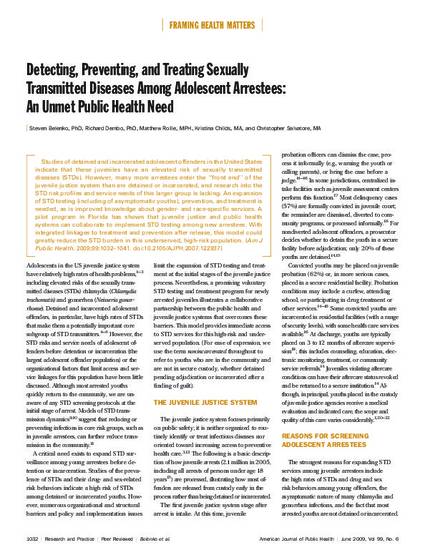
- Adult and Continuing Education,
- Chemicals and Drugs,
- Community Health and Preventive Medicine,
- Diseases,
- Epidemiology,
- Female Urogenital Diseases and Pregnancy Complications,
- Health and Physical Education,
- Health Services Research,
- Maternal and Child Health,
- Medical Education,
- Medicine and Health Sciences,
- Patient Safety,
- Public Health,
- Public Health Education and Promotion and
- Women's Health
Studies of detained and incarcerated adolescent offenders in the United States indicate that these juveniles have an elevated risk of sexually transmitted diseases (STDs). However, many more arrestees enter the “front end” of the juvenile justice system that is detained or incarcerated, and research into the STD risk profiles and service needs of this larger group is lacking. An expansion of STD testing (including of asymptomatic youths), prevention, and treatment is needed, as is improved knowledge about gender- and race-specific services. A pilot program in Florida has shown that juvenile justice and public health systems can collaborate to implement STD testing among new arrestees. With integrated linkages to treatment and prevention after release, this model could greatly reduce the STD burden in this underserved, high-risk population.
Available at: http://works.bepress.com/christopher-salvatore/21/
